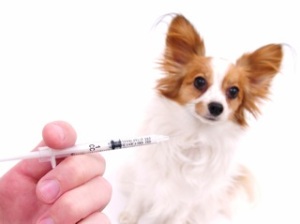Treating pets with over-the-counter medication can be a very bad idea. Don’t take chances with your pet. With our extended hours, it’s easy to get your pet fast and safe treatment.
Here are three commonly available medications that pet owners should avoid giving to their pets…
1. Aspirin
Asprin toxicity is poisoning that occurs following the ingestion of aspirin or aspirin-containing products. Aspirin can be especially dangerous when mixed with other drugs such as steroids or non-steroidal anti-inflammatory drugs. There is a much higher risk of toxicity. Aspirin interferes with platelets, which are responsible for helping the blood to clot. Disruption of platelet function increases the amount of time it takes the blood to clot in cases of wounds or lacerations. Spontaneous bleeding may also occur causing pinpoint bruises to appear in the skin and on the gums. Aspirin toxicity may cause gastrointestinal problems, respiratory difficulties, neurological problems, bleeding disorders and kidney failure. Gastrointestinal problems are common in dogs.
2. Ibuprofen
Ibuprofen is a popular and effective over-the-counter medication available to treat pain and inflammation in people. For dogs, ibuprofen can easily exceed toxic levels. The most common cause of ibuprofen toxicity is a well-meaning owner who tries to alleviate pain in his dog by administering a dose he thinks is adequate without knowing the toxic dose. The initial toxic effect is bleeding stomach ulcers. In addition to ulcers, increasing doses of ibuprofen eventually lead to kidney failure and, if left untreated, can be fatal. Symptoms include poor appetite, vomiting, black tarry stools, vomiting blood, abdominal pain, weakness and lethargy.
3. Acetaminophen
Common brands include Tylenol®, Percoset®, aspirin free Excedrin® and various sinus, cold and flu medications. Dogs most commonly receive toxic amounts of acetaminophen because owners medicate them without consulting a veterinarian. They also consume tablets that are dropped on the floor or left around. Dogs are less sensitive to acetaminophen than cats. For example, a 50-pound dog would need to ingest over seven 500 mg tablets in order to suffer toxic effects. In the cat, one 250 mg acetaminophen tablet could be fatal. If you suspect that your dog has ingested a toxic amount of acetaminophen, (one pill or more), contact the Animal Hospital of Polaris immediately.
In the event that your pet ingests these medications, please call the Animal Hospital of Polaris @ 614-888-4050…and in cases where you have a concern about the health of your pet and feel that they may be in need of medication, avoid a well-intentioned desire to medicate from your home medicine cabinet and call us!
